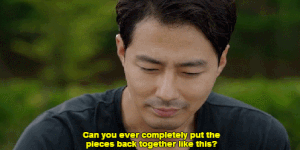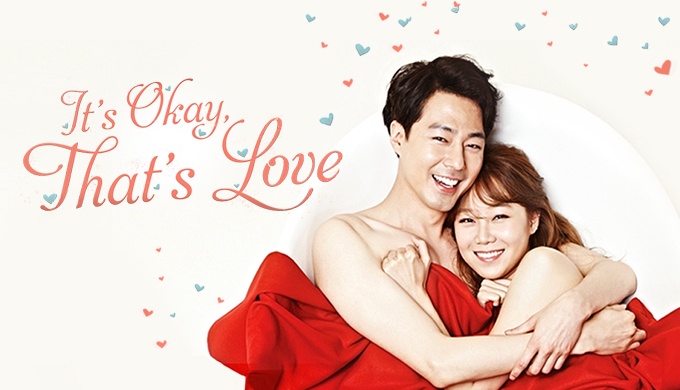This article comes with trigger warnings for depression, suicidal ideation, abuse, and mentions of transphobia.
For many people, retrospection means remembering all of the people you met, the places you traveled, and the things you accomplished in the last lap around the sun. For someone like me, however, this also means being grateful for the future I didn’t think I was going to survive to see.
Flipping open my art journal to about a year ago, you might be able to pick up the telltale signs; between being uprooted from a community I’d poured my life into, struggling to find a job and form friendships, a devastating break up, and part of my family moving across the ocean while the other part suffered from physical ailments, my mental health finally gave out. I could recite the typical descriptions of feeling alone, numb, and grey, how I spent days at a time in my bed crying because the pain of being in my own head was excruciating or where I hid the knife “just in case”, but I think this picture I drew of how I viewed my body (curled up and filled with dark static) says it best:
One of the hardest obstacles of healing from depression without a doubt is the stigma, and even though I knew several people (including family, I found out later) who fought daily with mental illness I rarely reached out because I was afraid my situation wasn’t “bad enough” to warrant attention. This is also the reason I hesitated for a long time to seek out a therapist as I thought that I didn’t deserve to steal time from someone in a worse state. Just as I thought my depression had reached the point of no return, I happened across the Korean drama It’s Okay, That’s Love. [quote_right]Every person in this series fights their way to health at one point or another[/quote_right]
Korean drama, otherwise known as K-drama, differs from American drama in that it tends to have its own set list of corny romantic stereotypes, and at first glance It’s Okay, That’s Love seems to fall into that category. Starring Jo In-Sung as hotshot mystery writer and radio host Jang Jae-yeol and Gong Hyo-jin as the compassionate though uptight psychiatrist Ji Hae-soo, you might think that this show would focus primarily on the relationship between two unlike personalities living together and falling in love (my initial interest had more to do with how Hae-soo could possibly be asexual). Instead, what you end up watching is one of the most profound and sensitive treatments of living with mental illness that has ever been portrayed on television.
For starters, what makes this show so incredible is how almost every single character diverges from neurotypical behavior for one reason or another: Hae-soo has a phobia of sex as well as anxiety that complicates her relationships, Jae-yeol’s obsessive-compulsive disorder means he color coordinates his whole room and sleeps in a bathtub every night, Hae-soo’s roommate Park Soo-kwang’s Tourette’s syndrome can lead to panic attacks, and this isn’t even mentioning all of the patients that the psychiatrists meet or have sessions with daily. From the first episode we learn that It’s Okay, That’s Love is not afraid of facing trauma with humor, but does so by treating its characters as humans and not plot devices.
For instance, while I enjoyed watching Hae-soo meet her favorite author and then have to verbally spar him on TV in their meetcute, I was more intrigued by the moment a patient with schizophrenia is calmly soothed during an episode rather than treated like a violent threat. Though the doctors joke that he stopped taking his medication because his girlfriend complained about it affecting their sex life, no one looks at the experience as though it were inhuman. In contrast, I was also deeply touched to see how the situation of a trans patient recovering from an abusive family was handled with delicacy rather than dismissed with ignorant transphobic humor.
Another great aspect of this show comes from the realism of the character interactions, like how our main couple isn’t immediately smitten with one another. In fact, both of them endure the emotional wounds of cheating significant others before they ever develop any solid attraction even after Jae-yeol moves in with the group. More often viewers are rewarded with watching Hae-soo convince her roommate that he’s worthy of love despite a socially awkward condition and bad luck, or how a meteoric rise to fame and riches can’t help Jae-yeol overcome writer’s block or forget an attack by his fratricidal brother.
Every person in this series fights their way to health at one point or another, but only after finding the courage to trust the people that care about them. At the time I often self-isolated since depression meant I didn’t fully have control over my brain and feelings and I was terrified of hurting or being rejected by others, so seeing depictions of how supportive people could be gave me hope for my own condition.
It’s Okay, That’s Love isn’t without its failings, of course. If you’re not used to tropes like convenient fainting or kissing without warning (which is used sparingly, to be fair), then some plot points can occasionally feel forced and cheesy. At one a point there’s even a relationship with a minor that, while not outright taboo, definitely crosses into some sketchy Scott Pilgrim territory. That being said, the strengths consistently outweigh the weaknesses, so it’s worth braving a second or two of weirdness here and there.
I haven’t recorded in my art journal too much lately, mostly because being able to crawl towards stability means filling your time with work or people or finding time to rest to maintain your health, but the majority of the pages are bright with promise. I’m not without my relapses, but if this show has taught me anything it’s that finding your people, the one’s that really understand what you’re going through or at the very least are willing to help you through it, can be worth fighting through the agony. Today, I celebrate the person I spent 365 days building back up from darkness.
Today, I’m working towards my own version of a cheesy K-drama ending one step at a time, whatever that may be. Today, right now, I’m proud to say I want to live.

Are you following Black Nerd Problems on Twitter, Facebook, Tumblr or Google+?







Show Comments
cierrajblue
I have just started watching the show thank sot this post and I am very impressed! I used to love watching k-dramas then I got too busy and stopped but thanks to this post Im back on it! really good and im happy the show helped you
Cora
I’m glad It’s Okay, That’s Love helped you and that you wrote about the experience. Without this article, I probably wouldn’t have gone back to it after getting bored in episode 2 on my first go-round and putting it aside. Thank you for inspiring me to finish it. It was definitely worth it.
favour
wow this is soooooooooooooooooooooooooooooooooooooooooooooooooooooooo
great.
Olivia
I deal with depression as well and just seeing how the characters in these shows (or any show or book) seeing how they deal with problems and how everything comes to be resolved in the end helps me to press on. I am at a bad point in my life though so I’m hoping I can keep pressing on and make it. Thanks for this article- I love the piece you drew.